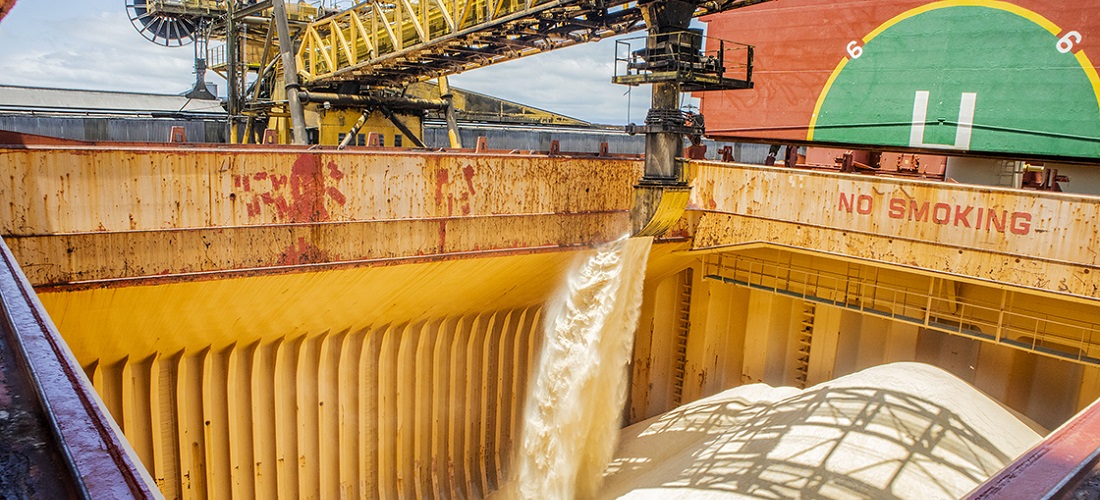
Brazil closes post-Brexit era deal with EU on agricultural quotas
Sep, 21, 2022 Posted by Gabriel MalheirosWeek 202238
Brazil and the European Union (EU) reached a bilateral agreement on agricultural commodity quotas to adapt them to the bloc’s change in size after the United Kingdom left the group through Brexit. Brazil sells a predetermined volume to the EU through quotas at a reduced tariff.
Under the new agreement, the EU will reduce quotas, but, in return, the UK decided to open others proportionately, thus preserving Brazil’s export window for both markets.
Brazil uses several quotas to export sugar, chicken, beef, and turkey meat to the EU. By using this mechanism to sell, the exporting country enjoys a lower tax rate.
The Brazilian news agency Valor found that Brazil’s sugar export quota dropped from 388.12 thousand tonnes to 341.55 thousand tonnes, with the remaining volume redirected to the United Kingdom.
The EU opted for keeping the tariff reduction at 11 euros/tonne in the deal’s first year and 54 euros/tonne in the second year of the updated quota of exclusive use of Brazil under what was agreed when Croatia entered the bloc.
In turn, another quota, which Brazil shares with other exporters, will go from 371,880 tonnes to 341,460 tonnes.
As for chicken meat (salted, processed, frozen, etc.), several quotas of exclusive use for Brazil will decline from 338.88 thousand tonnes to 244.27 thousand tonnes, a contraction of 27.9%. Conversely, with this drop in the EU, the quota in the UK will increase, bringing more Brazilian chicken sales to that market in the upcoming years.
Brazil’s quote for boneless beef, currently at 10 thousand tonnes, will drop to 8.95 thousand tonnes. The frozen beef quota Brazil shares with other markets will drop from 63,700 tonnes to 19,700 tonnes. As a result of this sharp drop, the EU has committed to compensate by lowering the tariffs from 20% to 15%.
In the other agricultural quotas, Brazil competes with other exporters, and the division between the EU and the UK is also outlined.
The EU’s overall grain quota has been increased from 278 thousand tonnes to 276.4 thousand tonnes. In other words, the community block retains nearly all the volume at a lower rate.
In the case of plywood, the quota in the EU drops from 650 thousand to 448.5 thousand tonnes.
The quota for the entry of table grapes at a lower rate into the EU was reduced from 1,500 tonnes to 885 tonnes.
Brazil’s quota to export 1,500 tonnes of orange juice is specific to the EU. In turn, the export quota for juices, in general, decreased from 7.04 thousand tonnes to 6.55 thousand tonnes.
Upkeeping of certificates
The EU assured that it would keep emitting a certificate of origin of exporters so that the Brazilian government may keep track of who has access to the quotas and avoid irregularities.
Following the conclusion of the talks between Brazil and the EU, the Europeans must now obtain internal approval before signing the agreement, which may take months. However, to avoid a mismatch between the two and losses for the exporter, the adoption of UK quotas should coincide with the implementation of quota agreements with the United Kingdom.
Negotiations between Brazil and the United Kingdom are well advanced on the volumes of agricultural quotas that London will open. However, problems like managing quotas, for instance, still need to be handled. On October 5, there will be fresh negotiations.
Source: Valor Econômico
Para ler o artigo original completo, acesse: https://valor.globo.com/agronegocios/noticia/2022/09/21/exclusivo-brasil-fecha-acordo-com-ue-sobre-cotas-agricolas-depois-do-brexit.ghtml
-
Sugar and Ethanol
May, 04, 2023
0
Traders see sugar loading delays in Brazil, prices could go higher
-
Grains
Jun, 22, 2020
0
Brazil’s soy, sugar and petroleum exports already surpass June 2019 levels
-
Apr, 14, 2023
0
Brazilian papaya producers rejoice as space in Chilean market increase
-
Coffee
May, 18, 2023
0
Conab lowers forecast for Brazil’s 2023 coffee crop on robusta drop

